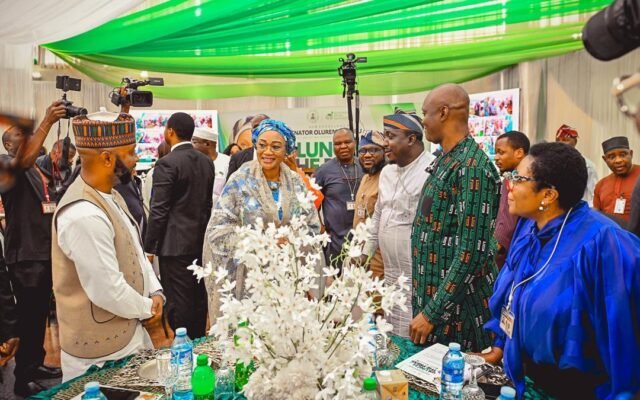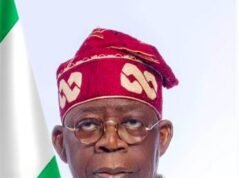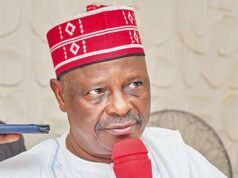Nigeria’s First Lady, Senator Oluremi (Remi) Tinubu, has announced that her 65th birthday appeal for funds to help complete the long-stalled National Library project in Abuja pulled in just over ₦20 billion from well-wishers and donors. The total — reported as ₦20.4 billion by multiple national outlets — was revealed during a State House briefing where Mrs Tinubu framed the drive as a civic, not a political, appeal and said the money would go toward the National Library under the Renewed Hope Initiative.
The scale of the receipts — raised in a matter of days — has put the fundraising in the national spotlight. Supporters hailed the mobilisation as a private-sector push to finish an important cultural asset; critics said it exposed gaps in government funding priorities.
Table of Contents
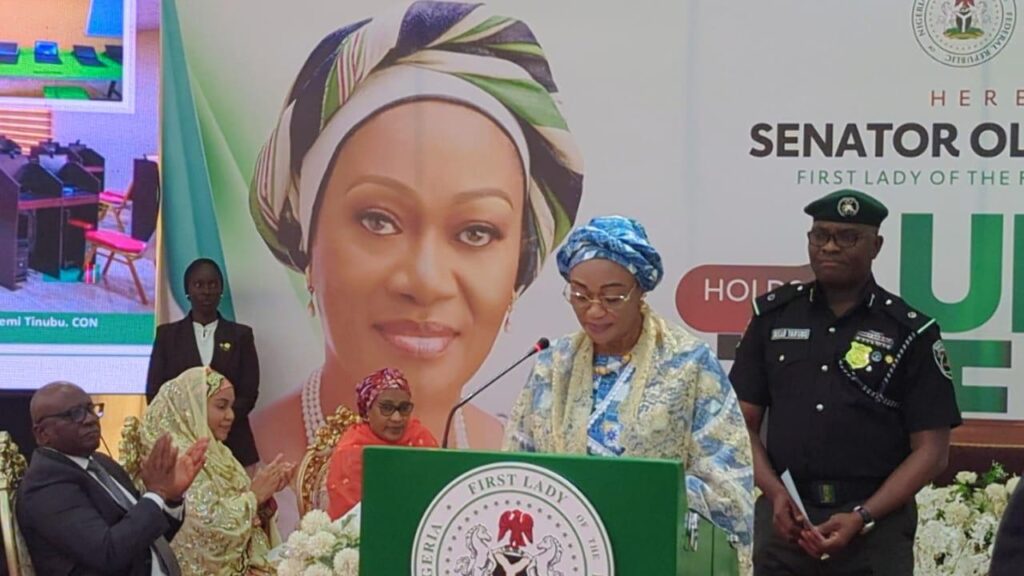
The figure — what was raised for the national library and how it was announced
Mrs Tinubu told State House correspondents that donations for the National Library clocked above ₦20 billion, citing the tally at around ₦20.4 billion. The First Lady stressed the effort grew out of her personal commitment — as a former teacher and a long-time advocate for literacy — and emphasised the fundraiser was meant to help complete the library building that has been on-and-off for decades. National media carried the disclosure, and the figure has been repeated across several outlets.
It’s important to be clear: the headline total has been confirmed by the First Lady’s team and mainstream outlets. But, as with many high-profile donation drives, the names and specific amounts attributed to individual donors have been reported through a mixture of official statements, press coverage and social-media posts — and not every line-item has an independent, official invoice available publicly. Where I list amounts below, I point to the public sources that reported them so readers can see where the numbers come from.
Who reportedly donated — names, amounts and the caveats
Several prominent Nigerians’ names have been associated with the fundraiser. Some were publicly named in media coverage and by Mrs Tinubu’s office; others appeared in online lists shared across social platforms and local news sites. Below is a composite of the principal names that have circulated in the reporting, with the source(s) for each claim and a reminder where figures remain unverified by formal receipts.
- Aliko Dangote — widely reported as the largest single contributor, with social-media posts and some outlets listing a figure around ₦8 billion. Dangote is a frequent high-profile donor on national projects, and his name circulated quickly after the fundraising began. Note: mainstream outlets have reported the claim, but direct confirmation from Dangote Group was not published at the time of reporting.
- Prince Arthur Eze — several reports and social posts named Arthur Eze among donors, with amounts in the region of ₦500 million appearing on circulated donor lists. As with other individual allocations, this figure originates from media and social-media compilations and has not been universally verified via independent accounting documents.
- Senator Godswill Akpabio — the Senate President’s name appears on published lists of donors; some social posts attributed ₦50 million to him. Given Akpabio’s public office and political profile, mentions of his donation have been widely shared, but the exact number remains tied to the reports cited rather than an open bank statement.
- Other named individuals and businesses — online posts and local news stories also circulated other contributors’ names: senior businesspeople, traditional figures and political actors. Several outlets simply noted that “many donors preferred anonymity,” while some named familiar figures from Nigeria’s business and political elite. Readers should treat individual line-item amounts with caution unless the donor or the First Lady’s office publishes a detailed breakdown.
Why the caution? Crowd-sourced lists and social posts spread quickly after the announcement. They are useful for early reporting and to show public interest, but they sometimes contain errors or double-counts. For rigorous accounting, an itemised public ledger from the organisers — or formal confirmation from named donors — is the gold standard; until then, media reports are the best available guide.
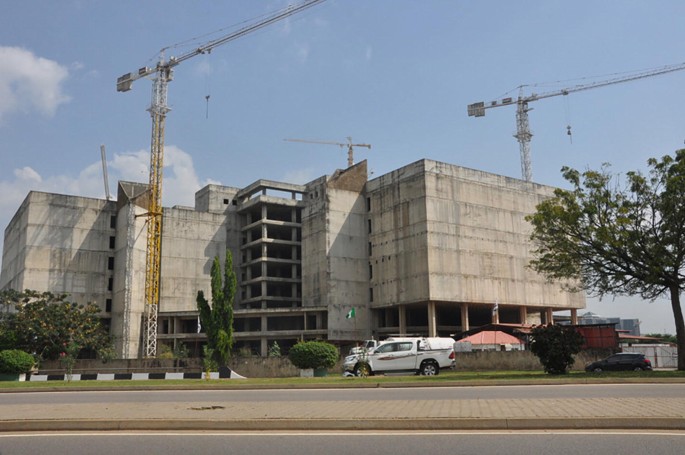
What it means — public reaction and wider context
Reactions have been mixed and sharply felt. Supporters say the mobilisation shows private citizens and businesses stepping up to fill gaps where public budgets have failed. For people who have long championed better literacy infrastructure, the prospect of a completed National Library is a positive outcome that could deliver intergenerational benefits for students, researchers and the reading public.
Yet critics have been vocal. Some commentators — including opposition figures and civil society voices — argued that asking for birthday donations to complete a national facility exposes the state’s failure to prioritise basic cultural and educational infrastructure. Former presidential candidate Peter Obi publicly faulted the exercise, saying it highlighted misplaced priorities and the need for the government to fund core services directly rather than rely on fundraising appeals. These debates show how a single fundraising event can trigger broader conversations about public finance, civic responsibility and the relationship between government and wealthy private citizens.
This is not new territory in Nigeria: past administrations and civil-society campaigns have often relied on a mix of public and private funding for major monuments, libraries and hospital wings. What is novel is the speed and scale of this particular drive and the way it has unfolded publicly on social platforms and in state briefings.
What comes next — transparency, delivery and accountability
If the official aim is to complete the National Library, several practical steps should follow to reassure the public and make the funds deliverable:
- Public accounts and a clear spending plan. The First Lady’s office should publish a simple but verifiable breakdown of the funds received and a timetable for how they will be spent on the National Library project. This would reduce speculation and build confidence in the project’s execution.
- Independent oversight. An independent oversight committee — ideally with representation from the Ministry of Education, civil society and technical experts in library management — can help ensure money goes to construction, equipment, books and maintenance rather than being absorbed by overlapping administrative costs.
- Regular progress updates. Short progress reports and photographs from the site, published at intervals, would help the public track completion and ensure the library does not slide back into long delay.
- Donor acknowledgement with consent. For donors who agreed to be named, public acknowledgement is appropriate. For those who gave anonymously or through intermediaries, privacy should be respected while still accounting for the total sum received.
These recommendations are practical and aimed at preserving goodwill. A successful, transparent delivery will boost confidence in similar philanthropic drives; a messy or opaque process risks undermining public trust.
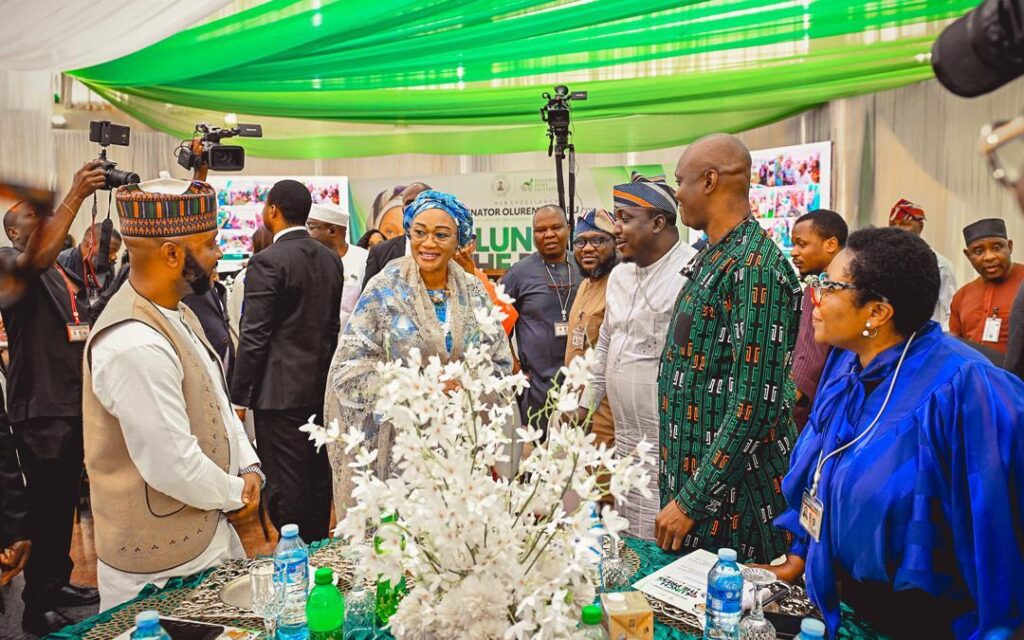
Conclusion
The story of the ₦20 billion fundraising for the National Library is both hopeful and unsettling. Hopeful, because it demonstrates that Nigerians—individually and through businesses—can mobilise significant resources quickly for the public good. Unsettling, because the episode raises serious questions about how public infrastructure is funded and who bears responsibility for sustaining nationally important institutions.
As the work progresses, citizens and the media should press for transparency: a clear account of receipts and expenditures, independent oversight, and timely updates on construction and procurement. That way, the fundraiser can achieve something far more meaningful—a completed National Library that serves the reading public for generations to come.
Join Our Social Media Channels:
WhatsApp: NaijaEyes
Facebook: NaijaEyes
Twitter: NaijaEyes
Instagram: NaijaEyes
TikTok: NaijaEyes
READ THE LATEST EDUCATION NEWS


